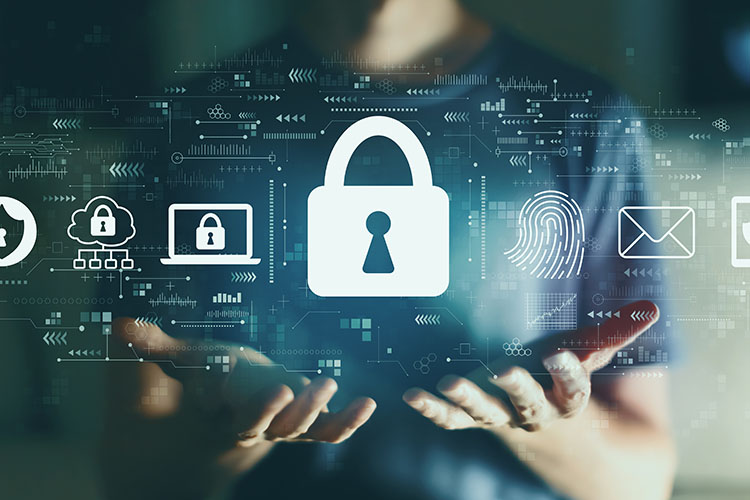The article mentions how teaching your children about the Internet and their privacy is imperative. Parents should keep an eye on their kids at all times to make sure they are not sharing personal information or pictures on the Internet. Kids should be taught the importance of choosing their own passwords. They should also know that posting photos of themselves or others on social media sites.
As technology continues to evolve, there are more and more ways for kids to connect with each other online. While some of these interactions are harmless, others can be dangerous.
With the rapid rise of social media, it seems that more and more kids are exposed to the dangers of the Internet. In this article, we’ll share some of our favorite tips for keeping kids safe while they use the web.
While these tips may seem obvious, it’s important to note that not everyone understands the dangers of the Internet and social media. This means that there’s a good chance that your kids could be vulnerable.
From Internet Predators
Parents should use these Internet safety tips to teach their kids how to protect themselves online, including using parental controls on their mobile devices, staying offline at night alone in their room, and using good judgment when choosing friends online.

Talk To Your Kids About Internet Safety
As kids get older, they start using the Internet more and more, and they start getting exposed to the dangers of it. Websites like YouTube and Instagram make it so easy to see things that other people post. This means that even kids who think they know better could easily stumble onto something they shouldn’t.
You can do many different things, and it’s a good idea to start talking to your kids about it as soon as they can understand. Some ideas include:
Use browser extensions. If your child has a browser like Chrome or Firefox, you can install useful tools to help them stay safe online. Extensions like HTTPS Everywhere and Privacy Badger make it harder for sites to track where you go and what you’re looking at. You can also install the parental control app on your phone, which will help keep your child safe while they’re on the phone.
Use your phone. As I mentioned earlier, it’s not just about your computer. Your phone is a powerful tool and a very convenient way for your child to access the Internet. Just make sure they don’t have any apps that allow them to search for anything on the Internet. You should also set a passcode on your phone so that they can’t access certain things if they try to.
Check Out These Internet Safety Tips
Before you go any further, it’s important to ensure you know what you’re talking about regarding internet safety. There are lots of myths and misconceptions floating around regarding this topic. Here are a few to be aware of:
“Social media is just for teens.”
While social media is great for connecting with friends, it’s also a good way for kids to meet new friends and stay in touch with old ones. It’s a powerful tool for communication and entertainment.
“Social media is a great way to learn how to deal with bullies.”
Bullies don’t care about social media, so they won’t try to bully you on Facebook. Talk to your parents, teachers, or other trusted adults if you want to learn how to deal with bullies.
“If you don’t say anything on social media, you’re giving up your right to privacy.”
If you don’t want people to know about your activities, you can block them. Otherwise, you may as well write a letter to the editor.
“You can’t get viruses on social media.”
This is a common misconception. Viruses are created for computers, and they’re not designed to spread via social media.
“There are no consequences for posting embarrassing pictures on social media.”
This is also a common misconception. There are plenty of consequences for posting embarrassing pictures on social media.
“Social media is just for entertainment.”
While social media is great for staying connected and making friends, it can also be a great way to communicate and entertain.
“Social media is just for kids.”
While social media is a great way to keep in touch with friends, it’s also a great way to stay connected with other kids.
“Social media is a great way to learn about politics.”
While social media can be a great way to learn about politics, it’s not the only way.
Tips to Help Prevent Cyber Bullying
Cyberbullying is on the rise. We all know someone who has been affected by cyberbullying. This can lead to low self-esteem, depression, and even suicide.
It’s important to teach children how to deal with this issue. Here are some tips to help prevent cyberbullying.
- Keep the family involved. Make sure everyone is aware of what is happening. If your child is being bullied, talk to them about what they’re experiencing. Don’t just leave them to handle it on their own.
- Monitor your child’s social media accounts. If your child is using social media, monitoring what they’re posting is vital.
- Set rules. Ensure you set clear boundaries for your children regarding the use of social media.
- Be mindful of the sites your child visits. Some websites can be filled with malicious software. Ensure you know where your child is going online and what they’re doing.
- Talk to them. It’s important to sit down and talk with your child about their experiences with cyberbullying. This will help you identify any underlying problems.
- Set an example. Kids will follow your lead. Your kids will do the same if you’re an active social media user. Show them that they can handle whatever comes their way online.
- Tell them to report anything that’s bothering them. Your kids may not have the courage to tell you directly. If you notice anything suspicious, report it to your child’s social media platform.
- Teach your kids to be accountable. Please have your child talk to you about the content they’re sharing. You may not want to hear the bad stuff they’re saying, but it’s important to let them know you’re still on their side.
- Let them know they’re not alone. Kids who are being bullied can feel like they’re the only ones who are going through this.
Online Safety Tips for Teens
With the rise of social media, kids today are becoming increasingly connected to each other online. This is a great thing, as it allows them to stay in touch with friends, explore new topics, and participate in activities. However, this also opens them up to the dangers of the Internet.
While kids are just as vulnerable to cyberbullying as before social media, they are now also exposed to more risk.
Some of the dangers include:
- Fake accounts. Some people try to trick other users into sharing personal information. They do this by creating fake profiles and using these to contact other people and trick them into sharing their data.
- Scamming. People often scam other users online. They may pretend to be someone else or trick people into sharing their login information.
- Cyberbullying. The number of teenagers who are bullied online is on the rise. Sometimes, they’re targeted because they’re different, such as LGBTQ, and sometimes because of their gender.
- Self-harm. Teens are at greater risk of self-harm than ever before. The suicide rate among teens has increased by over 50 percent in the last 15 years.
- Sexting. This includes sending nude or sexually explicit images to other users.
- Identity theft. Hackers can steal personal information and use it for identity theft.
Frequently asked questions about Safety Tips.
Q: What are some common Internet Safety tips that parents can implement to help protect their kids?
A: I suggest setting parental controls on all your electronic devices (iPhones, iPads, computers) and creating a family Internet usage policy.
Q: How important is it to teach kids about safe online behavior?
A: It is very important to teach children about good online behavior. I like to teach my children that if they hear something funny or cool, they should say, “That’s cool!” instead of sharing it with their friends.
Q: Can teens learn to control themselves?
A: Teens and adults have different needs regarding their bodies. We have to teach them how to manage these differences.
Q: Should parents monitor the conversations their teens have online?
A: Parents should not be responsible for what their kids do online. Kids need to learn how to use this.
Top Myths About Safety Tips
- Parents should only use the Internet for fun.
- You shouldn’t download games on the IInternet.
- You shouldn’t download movies on the IInternet.
Conclusion
Internet safety is something we have to teach our children from a very young age. This is because, although we know that the Internet can be a great place to get information, it can also be dangerous.
Many people make money from home but don’t necessarily have a degree. And that’s something that shouldn’t stop you from trying.
You’ll see a lot of advertisements for degrees online, but you don’t need a degree to make money online. If you’re passionate about something and willing to prove it, you can find a way to profit from it.










